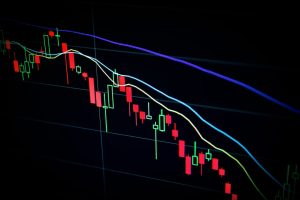Forex trading, also known as foreign exchange trading, involves buying and selling currencies with the aim of making a profit. It is a highly volatile market, and traders need to be constantly monitoring the market to make informed trading decisions. One of the key tools used by traders to monitor the market is signals. In this article, we will explain what signals are in forex trading, how they work, and the different types of signals.
What are signals in forex trading?
Signals in forex trading are indicators or alerts that help traders make informed decisions on when to buy or sell a currency pair. They are generated by various technical indicators and algorithms that analyze the market and identify potential trading opportunities. These signals are used by traders to identify trends, price movements, and entry and exit points in the market.
How do signals work in forex trading?
Signals work by analyzing various market indicators and providing traders with vital information on potential trading opportunities. These indicators may include moving averages, oscillators, and trend lines, among others. Once the signals are generated, traders can use them to make informed trading decisions.
For instance, a signal may indicate that the price of a particular currency pair is likely to increase in the next few hours. In this case, a trader may decide to buy the currency pair at the current price and sell it once the price increases, making a profit in the process.
What are the different types of signals in forex trading?
There are various types of signals in forex trading, and they can be broadly classified into two categories: manual signals and automated signals.
Manual signals: These are signals that are generated by human traders or analysts who analyze the market and identify potential trading opportunities. Manual signals are usually based on technical analysis or fundamental analysis of the market. Technical analysis involves analyzing charts and market data to identify trends and patterns, while fundamental analysis involves analyzing economic and political events that may affect the market.
Automated signals: These are signals that are generated by computer algorithms or trading robots that analyze the market and identify potential trading opportunities. Automated signals are usually based on technical indicators and algorithms that are programmed to identify specific market conditions.
Why are signals important in forex trading?
Signals are important in forex trading because they provide traders with vital information on potential trading opportunities. They help traders to make informed decisions on when to enter or exit the market, which can help to minimize risks and maximize profits.
Signals also help traders to save time and effort by providing them with real-time information on market trends and price movements. This information can be used to develop trading strategies and make informed trading decisions without having to spend hours analyzing the market manually.
Conclusion
Signals are an essential tool in forex trading, and they can help traders to make informed decisions on when to buy or sell a currency pair. They are generated by various technical indicators and algorithms that analyze the market and identify potential trading opportunities. Traders can use signals to identify trends, price movements, and entry and exit points in the market, which can help to minimize risks and maximize profits.





